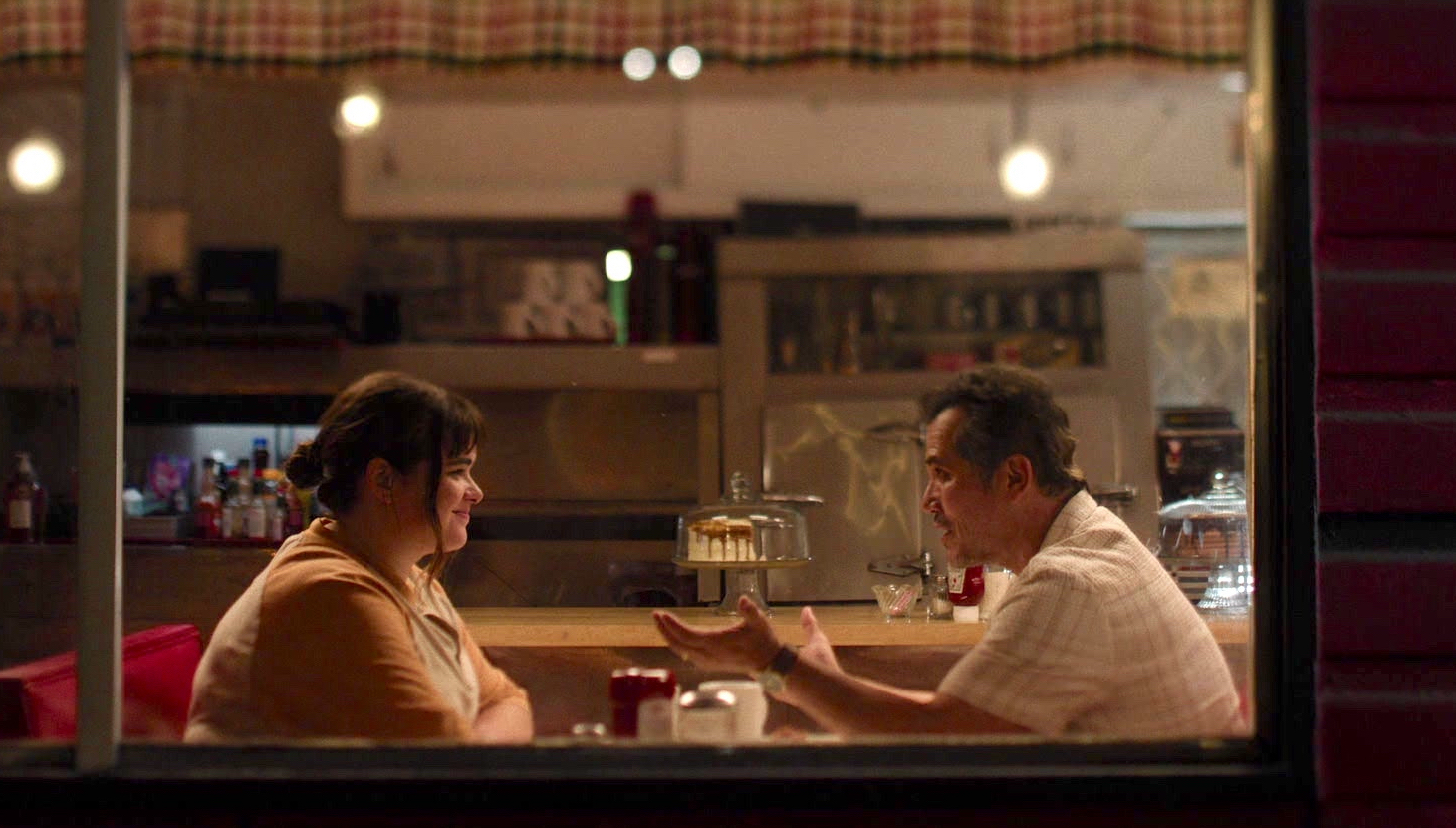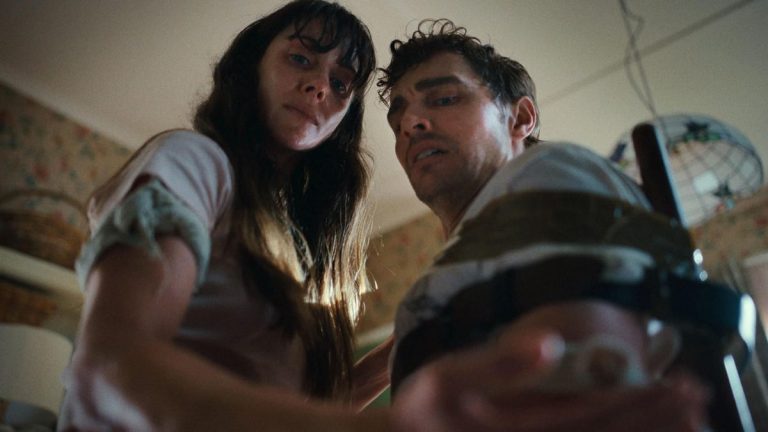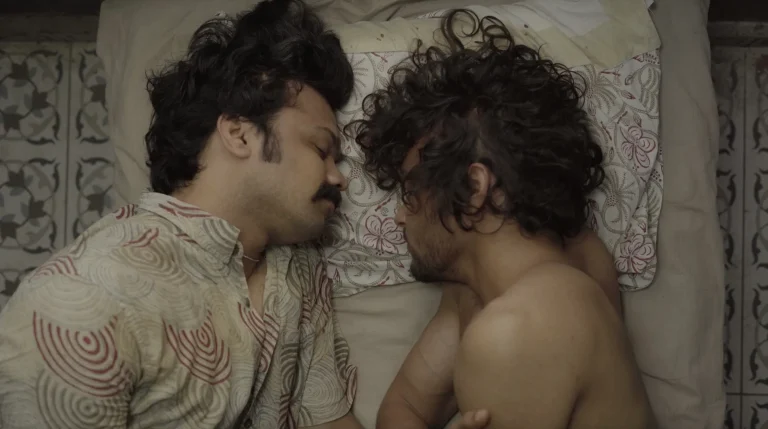Indie films, especially the new wave of Western independent cinema, often possess a rare ability to capture deeply human stories in raw, intimate ways. They can leave us haunted, reflective, and profoundly moved, particularly when they explore pain that feels achingly real. Tracie Laymon’s “Bob Trevino Likes It” (2024) is one such story. Based on Laymon’s own experiences, this quietly powerful drama unfolds with emotional honesty, capturing the ache of abandonment and the longing for connection in a uniquely poetic manner.
The story follows Lily Trevino (Barbie Ferreira), a twenty-something caretaker for Daphne (Lauren Spencer). Broke, depressed, and starved for love—especially from her estranged father—Lily yearns for a connection that seems forever out of reach. Her biological father, Robert “Bob” Trevino (French Stewart), has emotionally shut her out. He refuses to acknowledge her as his daughter and is more invested in online dating than reconciliation. In a moment of vulnerability, Lily stumbles upon a stranger on Facebook with the same name—Bob Trevino—and no profile picture. What begins as a digital coincidence slowly becomes the emotional heart of the film.
Titles often reflect a film’s character, location, or essence, sometimes summarizing the plot in a poetic one-liner. This film’s title is an action, and that simple action creates a beautiful connection. In a world of fleeting online interactions and digital apathy, the film unexpectedly offers the kind of hope we need right now.
We’ve seen many emotionally heavy coming-of-age dramas, but this isn’t just another story about a chaotic Gen Z character in crisis. In the film’s opening, we glimpse Lily’s cracked phone screen and her heartbreak after being cheated on, setting the tone with visual subtlety rather than dialogue. It’s an understated yet effective way to communicate her emotional landscape. Lily’s turmoil is internal, rooted in neglect, broken expectations, and the fragility of hope.
Best known for her role as Kat in “Euphoria,” Ferreira sheds that persona entirely here, delivering a layered, magnetic performance. Her monologues—especially those delivered directly to the camera—are raw, disarming, and surprisingly funny. She toggles effortlessly between humor and heartbreak, carrying the film with a blend of restraint and vulnerability. Her pain doesn’t scream—it simmers. Her awkwardness doesn’t vanish—it gently lingers.
John Leguizamo, as the Facebook Bob Trevino, is the film’s most unexpected delight. His warmth and endearing awkwardness provide a stark, welcome contrast to the emotionally distant biological father. The chemistry between Ferreira and Leguizamo is tender and convincing, and watching their bond evolve from hesitant exchanges into something deeper becomes the emotional backbone of the film. Their shared moments brim with subtle joy and healing.

Robert, Lily’s biological father, has limited screen presence, mirroring his absence in her life. While this seems intentional, his character lacks depth. He is portrayed as arrogant, emotionally detached, and tone-deaf, which occasionally generates dark humor but limits the emotional complexity that could have enriched the narrative. Still, this doesn’t detract from Lily’s growing relationship with the other Bob, which thrives on mutual understanding rather than being merely a counterpoint to her father.
Daphne, initially just Lily’s patient, becomes another emotional anchor. In one of the film’s most cathartic sequences, she invites Lily to join in smashing objects—a ritual of emotional release. Initially hesitant, Lily eventually embraces the act, asking Daphne to be her friend and finally letting go of the anger she’s held onto. It’s a simple, symbolic moment, but it feels genuinely earned and brings the story full circle.
Laymon subtly plants emotional parallels throughout the film. In one particularly heartbreaking moment, Lily’s real father hands her a list of expenses incurred while raising her—an emotionally tone-deaf gesture delivered with chilling casualness. Yet it fits the film’s quiet, dramatic tone, tinged with understated humor. In contrast, Facebook Bob, who is grieving, is meticulous and kind—he keeps detailed safety notes for his job even when told not to. Both Bobs are particular, but only one is driven by compassion. It’s easy to see why Lily clings to the second.
The film’s final act doesn’t offer a dramatic twist. Instead, it closes gently—even predictably—but in a way that feels authentic to the journey. When Lily and Bob meet again near the end, anyone who has experienced grief, familial estrangement, or a longing for love will likely be moved to tears. That quiet emotional resonance is Laymon’s greatest achievement.
“Bob Trevino Likes It” isn’t “Eighth Grade” (2018), but it’s not loud or flashy. It doesn’t demand your attention—it earns it, slowly and authentically. For anyone who has ever longed for connection, validation, or simply to be seen, this film will quietly break your heart, and then help piece it back together.




![Anonymously Yours [2021] Review: All Things Predictable and Sweet in this Mexican Teenage Drama](https://79468c92.delivery.rocketcdn.me/wp-content/uploads/2021/12/Anonymously-Yours_20210308-SC97-00491_R_V2-768x532.jpg)

![The Half of It [2020] Netflix Review: A charming and breezy coming-of-age love triangle](https://79468c92.delivery.rocketcdn.me/wp-content/uploads/2020/05/The-Half-of-it-Netflix-1-768x373.jpg)

![An Elephant Sitting Still [2018]: ‘TIFF’ Review – A Gritty Romanticism with Fatalism](https://79468c92.delivery.rocketcdn.me/wp-content/uploads/2018/09/elephantsittingstill_07-768x384.jpg)